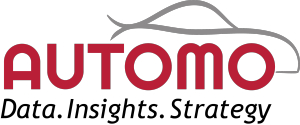
Automakers are witnessing significant advantages owing to rising adoption of EVs. On contrary, logistic industry is facing the challenge to thrive with EVs. The sector need to understand the new dynamics of supply chain to create a successful operational landscape.
The regulators are driving the multiplication phenomenon for adoption of Electric Vehicle (EV). The long-term goal for regulators is to achieve clean transportation by setting stringent standards. The guidelines are helping automakers to maneuver with alternative powertrain technology. Furthermore, EVs provide an added advantage to lower the environmental impact and achieve cost-efficiency in terms of economy. Tax credit incentives and low cost of ownership are the major drivers boosting the demand of EVs.
Submit RFP @ https://automo.ai/Research/the-Oracle-magazine/ELectric-Vehicle-and-Logistics/rfp
Automakers are witnessing significant advantages owing to rising adoption of EVs. On contrary, logistic industry is facing the challenge to thrive with EVs. The sector need to understand the new dynamics of supply chain to create a successful operational landscape.
The EV represents the transformation of automotive industry. So the suppliers and automakers need to reshape and collaborate to develop better systems and parts and position themselves appropriately.
The supplier will contribute more because of the reason that they need to shift from supplying internal combustion engine based product to electric power train based products. In addition, both the manufacturing and design of batteries for the electric vehicle is a complex task and OEM’s they have opted for suppliers who can help them to bring the EV’s to the market. OEM’s are now trying to bring the technology in-house and outsourcing a few components to the suppliers who have the R&D facilities for achieving the scalability and also knows the technical how about the product segment.
Talk to one of our representative @ https://automo.ai/Research/the-Oracle-magazine/ELectric-Vehicle-and-Logistics/callSchedule
The mechanical parts in combustion engine cars such as ignition coil, crankshafts, oil pans, spark plug, and others will not be used in future cars. Hence, the growth with respect to EVs will not offset the losses for combustion engine parts manufacturing. But in the long run, logistics will materialize all the losses.
The shipment of EV batteries is costly and cumbersome process due to their weight, safety procedures with respect to packaging and transportation of hazardous material such as lithium-ion core. Nearly located suppliers are more preferred by automakers. Majorly cell producers are located in Korea and China, hence, poses a big challenge for automakers and require to set up a manufacturing plant nearby.
In the field of logistics and distribution, the most important management problem is about vehicle routing. There are two different types of vehicle routing issues such as simple vehicle routing problem (VRP) and other one is heterogeneous fleet vehicle routing problem. As the demand for the product changes so does the supplier and logistics. Thus it is very important to design a routing path in such a way that geographically and locally distributed points should designed to minimize the cost with respect to customer demand. In one route and trip, one vehicle should reach all point only once. In the assigned route, the demand should not increase the vehicle capacity. As per the vehicle type, the vehicle routing problem also varies. The other issues which impact the vehicle routing problem are conditions for transportation, time taken, number of depots and others.
Heterogeneous fleet vehicle routing need to continuously determine the routing and composition of heterogeneous fleet of vehicle for their pre derived customers from one central depot. The heterogeneous fleet vehicle problem consist of designing set routes for vehicle to follow each ending and starting from the depot such that each customer is served once on their route. The problem that needs to be solved for now is driving the cost down, and maintaining the demand as per the vehicle capacity.
The electric vehicle upsurge the demand for critical metal and rare earth minerals posing challenges and opportunities with respect to supply chain. The demand for the batteries will surge based on the production of electric vehicle. In addition, recycling of batteries i.e. pick up services for batteries by OEM’s will also face challenge with respect to logistics. Thus it is very important for the OEM’s to minimize the cost of logistics by designing a cost efficient supply chain and addressing the vehicle routing issues.
About Automo: Automo’s global consulting team is exclusively positioned to identify and assess opportunities related to growth but also empowers our client to create strategies for the future which further enables them to convert goals into reality. Automo brings AI based Market intelligence to the Automotive Industry, in an easy to use dashboard format, to always keep track about the markets you care about on a daily basis. Any other custom requirements can be discussed with our team, drop an e-mail to sales@automo.ai or reach us at (+1) 113025664665 to discuss more about our consulting services.